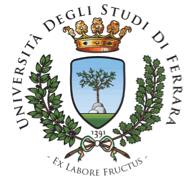Organizers’
Institutions


20-24 May 2019 //
Shanghai, China
Network localization and navigation (NLN) has been gaining relevance for a myriad of new location-based services for indoor and outdoor environments. The Internet of Things (IoT), cyber-physical systems, autonomous vehicles, and 5G communication will all benefit from NLN capabilities. All this potential can be unleashed by designing solutions for localization and navigation by a combination of distributed algorithms and off-the-shelf cost-effective technologies. These technologies are highly heterogeneous and encompass a multitude of sensory modalities such as RF, IMU, sonar, laser, IR, and visible light. In particular, RF signals can include WiFi/802.11x, UWB, RFID, Bluetooth, NFC, 3GPP/LTE, and the so-called signals of opportunity (e.g., TV). The availability of such technologies clearly entails that the latest challenge in NLN is not only to fully exploit individual sensors for these tasks, but also to design and implement methods that jointly fuse information from multimodal sensors as well as from multiple agents. Data fusion, cross-layer optimization, and new application scenarios are therefore the key aspects for further advances of the field and present exciting challenges for wireless communications and signal processing practitioners and researchers.
The goal of the workshop is to solicit the development of new positioning strategies that leverage the wealth of wireless communication technologies as well as of new location-aware procedures to enhance the efficiency of communication networks. This workshop will bring together academic and industrial researchers to identify and discuss technical challenges and recent results related to these issues. Topics of interest include, but are not limited to the following:
| • Data fusion for heterogeneous technologies
• Cooperative localization and navigation • Simultaneous localization and mapping (SLAM) • Network operation and scheduling for localization • Multi-agent control • Intelligent Transportation • Situational Awareness • Fundamental limits • Online Bayesian filtering • Methods with robust performance • Position-dependent parameter estimation • Information coupling in distributed localization |
• Localization via signals of opportunity
• Location-awareness for wireless networks • Hybrid IMU and magnetic pedestrian navigation • Passive and active RFID • Spectrum/Energy efficient positioning • Sensor radar networks • Localization methods for IoT and 5G • Soft information for localization • Joint localization and communication • Security and privacy in localization • Mobility models for tracking • Testbeds and experimentation |
Workshop Co-Chairs:
- Santiago Mazuelas (BCAM, Spain, smazuelas@bcamath.org)
- Andrea Giorgetti (Univ. Bologna, Italy)
- Stefania Bartoletti (Univ. of Ferrara, Italy)
- Florian Meyer (MIT, USA)
Call for Papers
Download here
Submission Guidelines
Click here
Submission Link
Click here
Important Dates
Full paper submissions: January 25, 2019
Notification of acceptance: February 22, 2019
Final manuscript:
March 16, 2019

